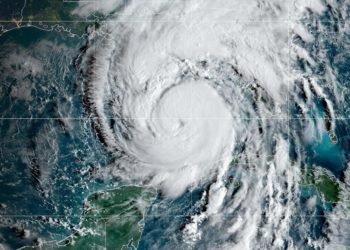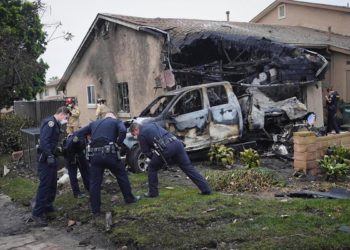How he plans to wield his power in the midterms and beyond
WASHINGTON (AP) — Between a barrage of executive orders, foreign trips and norm-shattering proclamations, Donald Trump has also been busy...
The Atlantic is primed to start spewing hurricanes, NOAA forecast says
Atlantic hurricane season 2025 is almost here and the National Oceanic and Atmospheric Administration says a "confluence of factors" are...
Senate likely to change House-passed megabill advancing Trump’s agenda
House Republicans approved the "One Big Beautiful Bill Act" encompassing President Donald Trump's legislative agenda early Thursday. But clearing the...
How Problematic Is Morgan Wallen, Anyway? In ‘I’m the Problem,’ He Doesn’t Want to Rile Up a Nation — Just Be Country’s Saddest Bad Boy
Did we always live in a time when the most popular male singer in America could also be one of...
‘I Wanted to Fight Him’
Scott Mescudi, the rapper and actor also known as Kid Cudi, took the stand as a witness during Sean “Diddy”...
Miley Cyrus reveals she ruptured an ovarian cyst during New Year’s Eve performance: ‘Extremely excruciating’
It might have looked like Miley Cyrus was having fun on Miley's New Year's Eve Party, the NBC special that...
Trump administration blocks Harvard’s ability to enroll international students
By Nate Raymond and Ted HessonBOSTON (Reuters) -U.S. President Donald Trump's administration revoked Harvard University's ability to enroll international students...
At least 2 dead after small plane crashes into San Diego neighborhood
A small plane crashed into a San Diego military housing neighborhood on Thursday morning, killing at least two people on...
Women ‘Do Not Have an Expiration Date’
Megan Fox is sharing some new details about her fourth baby.On Wednesday, May 21, the actress, 39, reposted a video...
US judge blocks Trump administration plan to gut Education Department
By Nate RaymondBOSTON (Reuters) -A federal judge ordered the Trump administration on Thursday to reinstate more than 1,300 U.S. Department...













